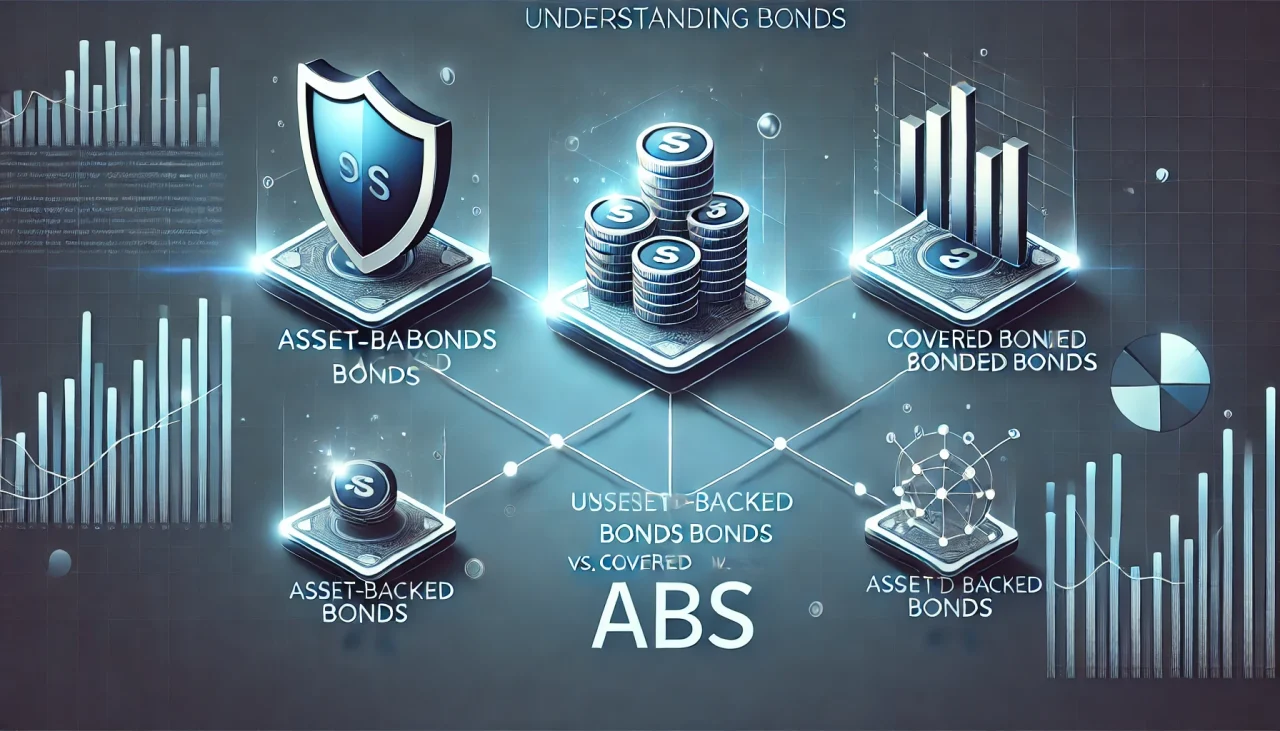Understanding the differences between asset-backed bonds (ABBs), covered bonds, and asset-backed securities (ABS) is essential for making informed investment decisions. This guide highlights their key features, helping investors determine which option best suits their needs.
1. Asset-Backed Bonds (ABBs)
ABBs are bonds secured by specific assets, offering investors stability and security.
-
- Tied to Specific Assets:
ABBs are backed by tangible or financial assets that serve as collateral. In case of default, bondholders have a direct claim on these assets.
- Tied to Specific Assets:
-
- Data-Driven Security:
The value and performance of ABBs rely on specific asset classes, such as mortgages or loans, providing data-supported and predictable returns.
- Data-Driven Security:
-
- Stable Income Streams:
ABBs generate regular interest payments from income produced by the underlying assets, making them ideal for investors seeking predictable cash flow.
- Stable Income Streams:
“For investors seeking a balanced blend of security and return, asset-backed bonds offer a data-driven approach to steady income. They’re a great addition to a diversified portfolio for those looking to secure their financial future.” – Rachel Buscall, CEO of Oakmount and Partners.
2. Covered Bonds
Covered bonds combine dual protection with high security, making them a low-risk investment option.
-
- Dual Backing:
Covered bonds are secured by a “cover pool” of assets while remaining on the issuer’s balance sheet. Investors have recourse to both the institution and the asset pool in case of default.
- Dual Backing:
-
- Enhanced Safety:
Typically issued by financial institutions, covered bonds are considered very secure due to this dual-layer protection.
- Enhanced Safety:
-
- High-Quality Assets:
These bonds often involve premium assets, such as residential mortgages or public sector loans, ensuring reliability and low credit risk.
- High-Quality Assets:
3. Asset-Backed Securities (ABS)
ABS offer diverse investment opportunities with potentially higher returns but come with increased risk.
-
- Broad Asset Pools:
ABS are backed by pools of assets, including loans, leases, or receivables, with income streams passed on to investors.
- Broad Asset Pools:
-
- Higher Yield Potential:
ABS expose investors to varied asset classes, offering the possibility of higher returns. However, this comes with increased exposure to market risk.
- Higher Yield Potential:
-
- Traded on Secondary Markets:
ABS are often traded on secondary markets, enhancing liquidity but also subjecting them to market volatility.
- Traded on Secondary Markets:
Regulatory Insights
The UK’s Financial Conduct Authority (FCA) provides detailed guidance on asset-backed securities, covering regulations, issuer requirements, and investor protections. For comprehensive information, visit the FCA’s Asset-Backed Securities Section.
Get Started with Asset-Backed Bonds Today
Reach out to our team for tailored advice on the top asset-backed bond opportunities in the UK. Our experts are here to help you explore options that match your goals for income, security, and stability. Contact us today and take the first step toward building a portfolio designed for your financial success
Related articles:






